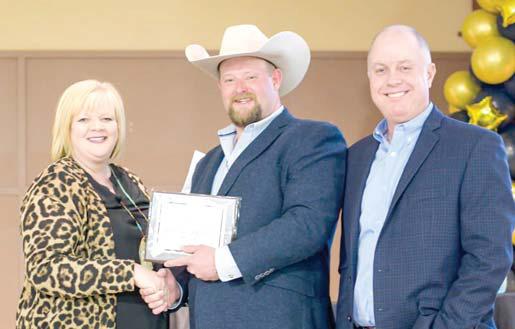Texas Farm Bureau (TFB) has filed a legal challenge to the new Waters of the United States (WOTUS) rule recently announced by the Biden administration.
TFB joined Matagorda County Farm Bureau, American Farm Bureau Federation and 15 other organizations representing agriculture, infrastructure and housing in filing the lawsuit against the rule issued by the U.S. Environmental Protection Agency and the U.S. Army Corps of Engineers.
“Texas farmers and ranchers cannot know whether their property or project contains WOTUS, because the rule is hopelessly vague,” TFB President Russell Boening said. “The rule reaches far too broadly to cover wet patches and areas that are usually dry or remote from navigable water. The rule violates the Clean Water Act and the Constitution, as well as Supreme Court case law, and it should be struck down.”
Boeing said the rule will require landowners to hire environmental consultants, attorneys, and engineers to ensure they are complying while trying to farm their land. He said the rule will have broad impacts throughout the country.
“It will slow down or halt projects, increase costs, eliminate jobs, all without improving water quality, which Congress trusted states and localities to regulate where navigation is not involved,” he said.
The complaint states that instead of providing muchneeded clarity to the regulated community, however, all the rule makes clear is that the agencies are determined to exert CWA jurisdiction over a staggering range of dry land and water features—whether large or small; permanent, intermittent, or ephemeral; flowing or stagnant; natural or manmade; interstate or intrastate; and no matter how remote from or lacking in a physical connection to actual navigable waters.
Under the rule, Plaintiffs’ members will constantly be at risk that any sometimeswet feature on their property will be deemed WOTUS by the agencies using vague and unpredictable standards—making normal business activities in that area subject to criminal and civil penalties.
It continues stating the rule should be held unlawful under the Administrative Procedure Act because the Rule adopts an unworkable definition of WOTUS that conflicts with the CWA, the Constitution, and Supreme Court precedent. Among its many defects, the rule effectively reads the term “navigable waters” out of the CWA., replacing it with a “significantly affect” standard that has no basis in the CWA.
Additionally, the complaint states the rule asserts improperly vague and malleable jurisdiction over features that “alone or in combination with similarly situated waters in the region significantly affect” navigable waters, interstate waters, or tributaries, determined by multiple indeterminate factors that provide no practical guidance to the regulated community, and asserts improperly vague and malleable jurisdiction over wetlands that are “neighboring” other nebulously defined features, improperly “alters the federal-state framework by permitting federal encroachment upon [the] traditional state power” over land and water which Congress expressly protected and exceeds the agencies’ delegated authority under the Commerce Clause.

